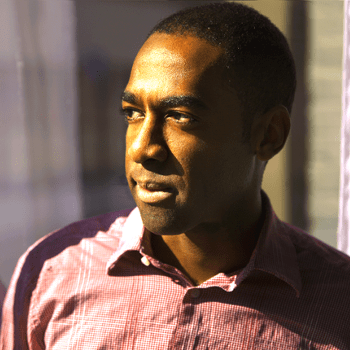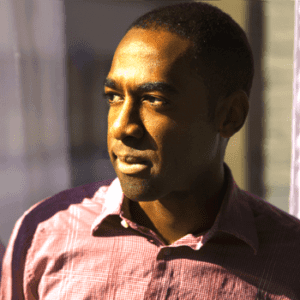Author of the Month: Ian Williams

Diaspora Dialogues
June 18, 2014


Tell us about yourself.
I’m here. I’m known for writing poetry and fiction, but I have an active, if somewhat secret, non-fiction life. The notebook beside my bed is full of dreams. I record the events of each day on a calendar. I could tell you, for example, what I did a year ago today. (I went to my goddaughter’s sixth birthday party. According to the entry, it was “pleasant, lovely.”)
When did you realize you had a passion for writing?
I liked paper as a child, whether that meant drawing on it, writing on it, or folding it into marvels of engineering. I liked writing, too, the actual formation of letters during Penmanship class. I had two excellent teachers in grade 6 who made us free-write daily, and in grade 7 I wrote a magical, slippery thing that turned out to be a poem. It was like an icicle, so perfect, surprising, otherworldly, and slightly dangerous in the mystery of its formation.
What pieces of writing/authors have had the greatest impact on you?
The first collection of poetry I bought with my own money was Margaret Atwood’s The Circle Game. I read it until the pages came loose. Someday, if someone asks me to compile a best-of-the-19th-20th-and 21st centuries, greatest hits album, I’d include tracks by Hopkins, Dickinson, Woolf, Eliot, Sexton, Beckett, Atwood, David Foster Wallace, Zadie Smith. Once you start naming names, you’re bound to forget someone. Nabokov.
How and when do you find time to write?
I don’t have a sophisticated theory of how and when anymore. I need a mixture of silence, solitude, and stimulation—none of those very literally, but more like an attitude or mental scape. Periods of editing, especially near the end of a project, require more discipline and a sustained block of time, often months.
What has been some of the biggest challenges you’ve faced as a writer?
This present novel is proving itself a challenge because it requires an enlargement of mind, much like the enlargement of lung during a deep inhalation, and true to lung, there’s only so much air one can hold and only for so long.
How have you changed as a writer over the years?
The voice is clearer. Whose? I suspect that phenomenon has more to do with years than with writing. A less cryptic answer would be, I feel free to calculate risks, to solve a technical problem in a wholly unconventional way. In my mind, readers are no longer strangers, but friends, meaning I have a constant hum of affection for them even when we’re out of touch.
